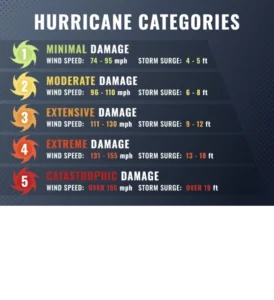Don’t Make These Mistakes When Screening A Tenant

4 Misconceptions About Rental Credit Checks
According to The Wall Street Journal, the demand for rentals is on the rise. Homebuyers who are being forced out of the market by soaring housing prices are turning to rentals. Tenants are holding bidding wars for apartments and single-family homes. Occupancy rates have dropped.
As reported by CNBC, “The coronavirus pandemic eviction moratorium, recently extended, is also playing into the supply situation. As some landlords are unable to evict tenants who aren’t paying, they have less supply to offer those who can pay. To offset losses, some are raising rents on the properties they can, knowing that demand in the market will support the increases.”
Is this a great time to be a landlord with vacancies to fill? Not necessarily.
It would be easy to sit at your desk with a stack of for your property and think that you can just choose the best sounding one. However, picking a new tenant based on intuition or possibly false information is risky business. Now, more than ever, it is imperative that landlords and property managers vet their applicants thoroughly before deciding who is going to occupy their investment property.
Here are 4 mistakes that landlords often make when choosing a new tenant:
1.“Tenant screening takes too long. I can tell from their application whether someone will be a good tenant.”
In this era of computerization, online credit screening takes little more than the time needed to fill in the applicant’s name, address, date of birth and Social Security Number. Within moments, the requested reports are ready to view. You can immediately have a credit report with score, previous address tenant history, TeleCheck verification, eviction and criminal details, sex offender and terrorist reports, social security fraud and federal searches. Picking a tenant without these rental background checks could cause a landlord a great deal of trouble down the road.
2.“A high credit score and a good job are enough for me to go on.”
While a high credit score and a well-paying job are good indicators of a person’s ability to pay their rent, there is still so much information missing. Those facts do not reveal what kind of tenant they will be. Although they may pay their bills on time and make enough money to afford your rent, they may not treat your property or their neighbors with respect. On the other hand, a low scoring tenant may be very diligent about paying their rent on time.
3.“I don’t want to pay for a tenant background check because they are too expensive.”
Many property managers and landlords require the applicant to pay for the tenant screening as part of the application fee. Always check the laws that govern application fees in your community.
Whether you or the tenant pays for it, not doing a tenant screening report is what can get very expensive. AAOA tenant background checks start at $19.99 and can save you quite a lot of money in the end. Between the eviction history, previous address tenant history and landlord verification, you will know exactly what kind of renter the applicant will be. You will discover whether your prospective tenant has been evicted for non-payment of rent or has done damage to their former apartment, thereby sparing you a great deal of expense and stress. The cost of the screening is minimal compared to the average $3500 cost of eviction.
4.“Rental credit checks can lower a person’s credit score.”
Many people are reluctant to have their credit checked. They believe that pulling their report will damage their score with the credit bureaus. This belief is only partially true. Credit pulls come in two varieties: hard and soft. A hard pull refers to inquiries made when a borrower applies for a loan, credit card or a mortgage. It usually appears on a credit report for about two years and affects the score for only one year. The credit score is only lowered by a few points, so the resulting effect is minimal and short-lived.
A soft pull usually appears on a credit report when a person checks their own credit or when an insurance company, credit monitoring service, utility, cable or internet provider or cell phone company runs a check. An AAOA credit report will always be a soft pull and will not affect the applicant’s credit score in any way.
Relying on intuition and incomplete, possibly false, information when approving a new tenant can turn the current rental boom into a bust for the unsuspecting landlord. With a thorough landlord background check, property owners can avoid making a mistake that could cost them thousands of dollars in eviction or damage repair costs.













 Accessibility
Accessibility